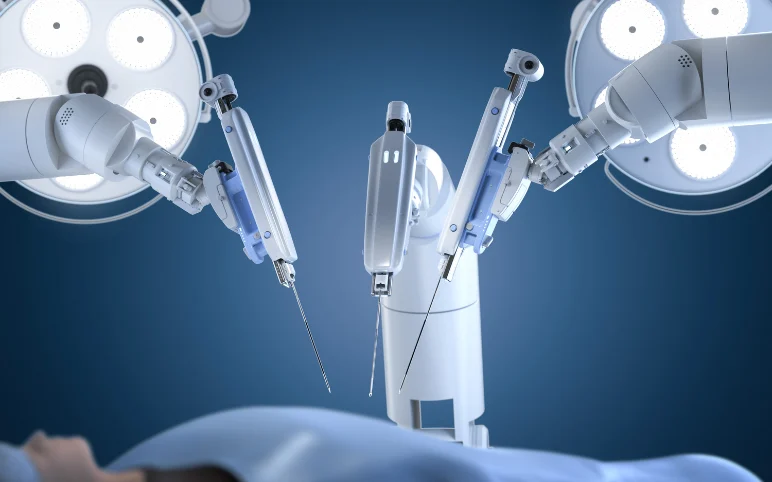Glucotrack Announced Ethical Approval for Long-Term Clinical Study of Continuous Blood Glucose Monitor
On May 13, 2025, Glucotrack, Inc., a medical device company focused on the design, development, and commercialization of novel technologies for people with diabetes, announced that it received ethical approval from the St. Vincent’s Hospital Melbourne Human Research Ethics Committee (HREC) for its long-term clinical study of the Company’s continuous blood glucose monitor (“CBGM”) in participants with type 1 and type 2 diabetes.
The prospective, single-arm, multi-center study was set to enroll up to 30 participants with type 1 and type 2 diabetes mellitus requiring glucose monitoring and intensive insulin therapy. The study aimed to evaluate the device’s performance and safety over an initial period of 1 year. The Company indicated that it might submit additional requests to extend the study to 3 years, following the completion of the initial period. With this approval, and following the Australian clinical study process, the Company proceeded to notify the Therapeutic Goods Administration (TGA), Australia’s regulatory authority for therapeutic goods such as medicines, medical devices, and diagnostic tests before initiating enrollment. The first patients were expected to be implanted by July. The study was conducted under Principal Investigator Professor David O’Neal (MBBS, MD, FRACP), Director and Founder of the Diabetes Technology Research Group at the University of Melbourne, Department of Medicine at St Vincent’s Hospital, Melbourne, and Associate Professor Neale Cohen (MBBS, FRACP), Head of the Diabetes Clinical Research Laboratory at the Baker Heart and Diabetes Institute, Melbourne.
“I am excited to be bringing my expertise in leading clinical trials focused on novel diabetes technology to this important study of a device that directly measures blood glucose,” said Professor O’Neal. “This technology shows great promise for the ability to improve glycemic control and offer patients expanded choice in continuous glucose monitoring systems. The ability to directly measure glucose in blood rather than interstitial fluid could represent a significant advancement for people with diabetes seeking more accurate real-time glucose values.”
Glucotrack’s continuous blood glucose monitoring (CBGM) System is a long-term, implantable solution designed to provide continuous and accurate blood glucose monitoring for up to three years. Unlike traditional continuous glucose monitoring (CGM) systems, which measure glucose levels from interstitial fluid, the CBGM system measures glucose directly from the blood, thereby eliminating the lag time commonly associated with interstitial readings.
As per DelveInsight’s “Blood Glucose Monitoring Systems Market Report”, the blood glucose monitoring systems market was valued at USD 12.12 billion in 2024, growing at a CAGR of 7.72% during the forecast period from 2024 to 2030 to reach USD 18.89 billion by 2030. The blood glucose monitoring systems market is expanding rapidly due to the rising prevalence of lifestyle style disorders such as diabetes and impaired glucose tolerance, growing product launches and approvals by key players, and a rising preference for minimally invasive techniques that are expected to significantly drive the demand for blood glucose monitoring systems from 2024 to 2030.
GE HealthCare Announced FDA Approval of Pediatric Indication for Optison Ultrasound Enhancing Agent
On May 13, 2025, GE HealthCare announced that the U.S. Food and Drug Administration (FDA) approved a pediatric indication for its ultrasound enhancing agent (UEA), Optison™ (Perflutren Protein-Type a Microspheres Injectable Suspension, USP). This approval is expected to enhance the clarity and diagnostic accuracy of echocardiograms in pediatric patients, enabling cardiologists to better assess ventricular function and identify potential heart abnormalities or diseases.
Optison works by using gas-filled microbubbles that reflect ultrasound waves more effectively than surrounding tissues or blood. This improves the visualization of heart chambers and endocardial borders, crucial for evaluating cardiac conditions. With a long-established safety profile, Optison is also the only UEA currently available in the U.S. that is free of polyethylene glycol (PEG), making it a safer option for patients with PEG hypersensitivity, who may be at risk for anaphylaxis or other adverse reactions.
“In some pediatric patients, standard echocardiography cannot produce sufficiently clear images of the heart, potentially hindering cardiologists’ ability to accurately diagnose underlying conditions,” said Jit Saini, MD, Chief Medical Officer of the Pharmaceutical Diagnostics (PDx) segment of GE HealthCare. “This regulatory approval is a significant milestone that affirms the safety and efficacy of Optison in pediatric patients of all ages and expands our ability to offer this advanced imaging solution to a broader patient population. By facilitating more accurate measurement of left ventricular function, Optison enhances diagnostic capabilities, ultimately improving patient outcomes and providing greater value to healthcare providers and their patients.”
As per DelveInsight’s “Cardiovascular Ultrasound System Market Report,” the global cardiovascular ultrasound system market was valued at USD 1.61 billion in 2023, growing at a CAGR of 4.79% during the forecast period from 2024 to 2030 to reach USD 2.11 billion by 2030. The cardiovascular ultrasound system market is witnessing positive growth owing to various factors such as the rise in the geriatric population, the increasing incidence of cardiovascular diseases, the increase in sedentary lifestyles, and the rising regulatory approvals for the cardiovascular ultrasound system. Therefore, the market for cardiovascular ultrasound systems is expected to grow during the forecast period from 2024 to 2030.
Envoy Medical Achieved Clinical Trial Milestone and is Optimistic About Expansion into the Final Stage of Trial
On May 13, 2025, Envoy Medical®, Inc., a pioneering company in hearing health specializing in fully implanted hearing solutions that leverage the ear’s natural anatomy, has announced a significant milestone: the successful activation of all 10 participants in the first stage of its pivotal clinical trial for the fully implanted Acclaim® Cochlear Implant.
The Acclaim Cochlear Implant (Acclaim CI) is considered a groundbreaking advancement in hearing technology, as it is believed to be the first fully implanted cochlear implant that does not rely on external microphones. Instead, it utilizes a unique sensor that captures sound by harnessing the natural anatomy of the ear. The Acclaim CI is intended for adults with severe to profound sensorineural hearing loss who do not derive adequate benefit from conventional hearing aids. Implantation eligibility is determined by a qualified physician based on individual clinical assessments.
Brent Lucas, CEO of Envoy Medical, commented, “We are excited to report the positive and meaningful progress of our pivotal clinical trial, which is currently on track and moving along as anticipated. We are optimistic we will be able to expand the study into the second and final stage during the fourth quarter of this year. We are also encouraged by the reported interest from people suffering from significant hearing loss who want to wait until a fully implanted cochlear implant is an option. We believe there is significant pent-up demand for fully implanted cochlear implants, and we are thrilled to be closer to meeting this unmet need.”
The Esteem® fully implanted active middle ear implant (FI-AMEI) is the only FDA-approved fully implanted* hearing device designed for adults with moderate to severe sensorineural hearing loss, offering continuous 24/7 hearing by utilizing the ear’s natural anatomy. Unlike traditional hearing aids, the Esteem implant is completely invisible, with no externally worn components and nothing placed in the ear canal for functionality. Once implanted, users do not need to put it on, take it off, clean it, or worry about losing it. The Esteem FI-AMEI provides a seamless and maintenance-free hearing experience, delivering true around-the-clock auditory support.
According to DelveInsight’s “Cochlear Implants Market Report,” the cochlear implants market was valued at USD 1.38 billion in 2023, growing at a CAGR of 9.92% during the forecast period from 2024 to 2030 to reach USD 2.43 billion by 2030. The cochlear implants market is observing substantial market growth primarily owing to the increasing prevalence of hearing loss & incurs substantial economic costs, investing in cochlear implants & improving access to these devices and supportive reimbursement policies are anticipated to further accelerate the overall growth of the cochlear implants market during the forecast period from 2024 to 2030.
SeaStar Medical Reached Interim Enrollment Target for NEUTRALIZE-AKI Pivotal Trial of SCD Therapy for Adult Patients with Acute Kidney Injury
On May 13, 2025, SeaStar Medical Holding Corporation, a commercial-stage healthcare company dedicated to advancing treatments for critically ill patients at risk of organ failure and death announced that it reached the midpoint of its NEUTRALIZE-AKI pivotal clinical trial. This milestone enables a prespecified per-protocol interim analysis to be conducted by the study’s independent Data Safety Monitoring Review Board (DSMB). SeaStar Medical expects the DSMB to share its findings in the third quarter of 2025.
The NEUTRALIZE-AKI trial is assessing SeaStar’s Selective Cytopheretic Device (SCD) therapy as a potential treatment for adult patients with Acute Kidney Injury (AKI) who require continuous renal replacement therapy (CRRT). The interim analysis, which is blinded to all parties except the DSMB, will review safety data and validate the trial’s powering assumptions based on the first 100 patients out of the planned total of 200. This analysis will be conducted after the evaluation of the trial’s primary endpoint for those patients.
The NEUTRALIZE-AKI (NEUTRophil and monocyte deActivation via SeLective Cytopheretic Device, a randomized clinical trial in acute kidney injury trial is a pivotal, randomized clinical study designed to enroll up to 200 adult patients diagnosed with acute kidney injury (AKI) requiring continuous renal replacement therapy (CRRT). The primary endpoint of the trial is a composite measure of 90-day mortality or dialysis dependency, comparing outcomes in patients receiving the Selective Cytopheretic Device (SCD) in combination with CRRT versus those receiving CRRT alone as the standard of care. With 100 patients currently enrolled, the trial will undergo a per-protocol interim analysis focused on 90-day outcomes, as reviewed by the Data Safety Monitoring Board (DSMB).
Key secondary endpoints include 28-day mortality, ICU-free days within the first 28 days, the incidence of major adverse kidney events at Day 90, and dialysis dependency at one year. The trial will also conduct subgroup analyses to evaluate the efficacy of SCD therapy in patients with AKI who are also diagnosed with sepsis or acute respiratory distress syndrome (ARDS), offering further insights into its potential benefit in critically ill populations.
According to DelveInsight’s “Continuous Renal Replacement Therapy Machines (CRRT) Market Report”, the CRRT machines market was valued at USD 1.17 billion in 2023, growing at a CAGR of 7.38% during the forecast period from 2024 to 2030 to reach USD 1.78 billion by 2030. The CRRT machines market is experiencing significant growth due to the increasing instances of acute kidney injury and sepsis, coupled with advancements in technology and product launches, which are acting as major factors contributing to the overall growth of the CRRT machines market during the forecast period from 2024 to 2030.
BD Launched Landmark Cell Analyzer Featuring Breakthrough Spectral and Real-Time Cell Imaging Technologies
On May 13, 2025, BD, a global leader in medical technology, announced the worldwide commercial launch of the BD FACSDiscover™ A8 Cell Analyzer, marking a significant advancement in cellular analysis. The BD FACSDiscover™ A8 is the first cell analyzer to integrate both advanced spectral flow cytometry and real-time cell imaging, providing researchers with the ability to gain deeper insights into cellular behavior with enhanced ease and throughput.
At its core, the platform features two groundbreaking technologies: BD SpectralFX™ Technology, which enables the simultaneous analysis of 50 or more parameters from a single cell, greatly improving resolution and sensitivity, and BD CellView™ Image Technology, which allows high-speed, fluorescent, and label-free imaging at the single-cell level to capture spatial and morphological details in real time. This combination provides researchers with unprecedented visual validation and analysis capabilities, particularly valuable in fields such as novel biomarker discovery.
Building on the innovations of the BD FACSDiscover™ S8 Cell Sorter, which was featured on the cover of Science, the A8 Analyzer sets a new benchmark in cell analysis by offering unmatched depth, speed, and sensitivity. Tailored for translational research, key features of the A8 include high-throughput automation with walkaway capabilities, industry-leading cost-per-insight efficiency, user-friendly software workflows optimized for managing large and complex datasets, and seamless integration with the BD ecosystem, including BD FACSDiscover™ Cell Sorters and BD reagents.
“The BD FACSDiscover™ A8 Cell Analyzer signals an exciting step forward for researchers in areas like immuno-oncology that require tools delivering excellent reproducibility and performance while managing budget constraints,” said Rui Gardner, head of Flow Cytometry Core Facility at Memorial Sloan Kettering Cancer Center, an early access collaboration site. “Our investigators have already learned so much using this new technology, and we look forward to performing deep immunophenotyping for high-fidelity biomarker discovery to elucidate insights that can advance research and improve human health.”
Together, these innovations position the BD FACSDiscover™ A8 Cell Analyzer as a transformative tool for accelerating scientific discovery.
According to DelveInsight’s “Clinical Chemistry Analyzers Market Report”, the global clinical chemistry analyzers market was valued at USD 12.38 billion in 2021 and will grow at a CAGR of 4.82% during the forecast period from 2024 to 2030 to reach USD 16.39 billion by 2030. The clinical chemistry analyzers market is observing remarkable market growth due to factors such as the growing prevalence of chronic diseases and the rising burden of the geriatric population. Furthermore, the surging demand for early diagnosis of disease, the increasing importance and awareness of point-of-care testing, surging technological advancements in the devices along with the increasing product launches and approvals, the presence of key players in the market, and other factors will create a requisite for the clinical chemistry analyzers in the market. Therefore, the market for clinical chemistry analyzers is estimated to grow at a substantial CAGR during the forecast period from 2024 to 2030.
GE HealthCare Unveiled Ultra-premium, High-performance Gradient 1.5T MRI System
On May 12, 2025, GE HealthCare introduced the SIGNA™ Sprint, an ultra-premium wide bore 1.5T MRI system with high-performance gradients (FDA 510(k) pending), at the International Society for Magnetic Resonance in Medicine (ISMRM) 2025. This next-generation MRI technology is engineered to advance imaging capabilities in cardiology, oncology, and other clinical and research fields.
The global demand for more sophisticated diagnostic tools continues to rise, cardiovascular disease remains the leading cause of death, responsible for 32% of global fatalities², while cancer claims nearly 10 million lives annually³. Innovations like SIGNA Sprint are poised to make a meaningful difference by enhancing the precision and efficiency of MRI diagnostics in these critical areas.
SIGNA Sprint aims to bring the high-gradient performance typically associated with 3.0T MRI systems to the more accessible 1.5T platform. Optimized for high-quality diffusion imaging—a key modality in oncology for diagnosis and treatment planning it is built to empower clinicians and researchers to push the traditional limits of 1.5T imaging. This enables both accelerated clinical application and cutting-edge research.
“We are driven to push the boundaries of what’s possible in MRI with our ultra-premium segment, as our goal is to set a new standard in diagnostic research and precision care that allows for earlier clinical detection and treatment response,” said Kelly Londy, CEO, MR, GE HealthCare. “We are working to enhance diagnostic capabilities to provide highly accurate imaging with peace of mind for patients. We hope to help clinicians unlock new horizons for research in advanced imaging.”
Delivering a powerful 65 mT/m amplitude and 200 T/m/s slew rate per axis, SIGNA Sprint supports fast imaging with outstanding clarity, enabling visualization of sub-millimetric structures. It also incorporates deep learning technologies to aid in diagnostic precision and monitoring treatment responses in oncology. The system supports the shift toward quantitative MRI, offering deeper tissue characterization and moving beyond conventional anatomical imaging. Advanced deep-learning reconstruction for cardiac imaging further enhances scan speed and interpretation, helping reduce variability and reliance on expert readers.
According to DelveInsight’s “Magnetic Resonance Imaging (MRI) Devices Market Report”, the magnetic resonance imaging devices market was valued at USD 8,207.06 million in 2024, growing at a CAGR of 6.54% during the forecast period from 2025 to 2032 to reach USD 13,553.33 million by 2032. The rising prevalence of various chronic disorders, such as cardiovascular diseases, cancer, and neurological conditions, is fueling the demand for precise diagnostic tools like MRI, which offers superior imaging capabilities for soft tissues and organs. Additionally, the increasing awareness and the emphasis on early diagnosis of chronic disease are encouraging patients and healthcare providers to adopt MRI for timely intervention. Furthermore, technological advancements play a crucial role in boosting the MRI market, with innovations such as high-field and open MRI systems, functional MRI (fMRI), and faster scan times improving the accuracy, comfort, and efficiency of the imaging process. Collectively, these factors are expected to expand the demand for magnetic resonance imaging devices globally during the forecast period from 2025 to 2032.



